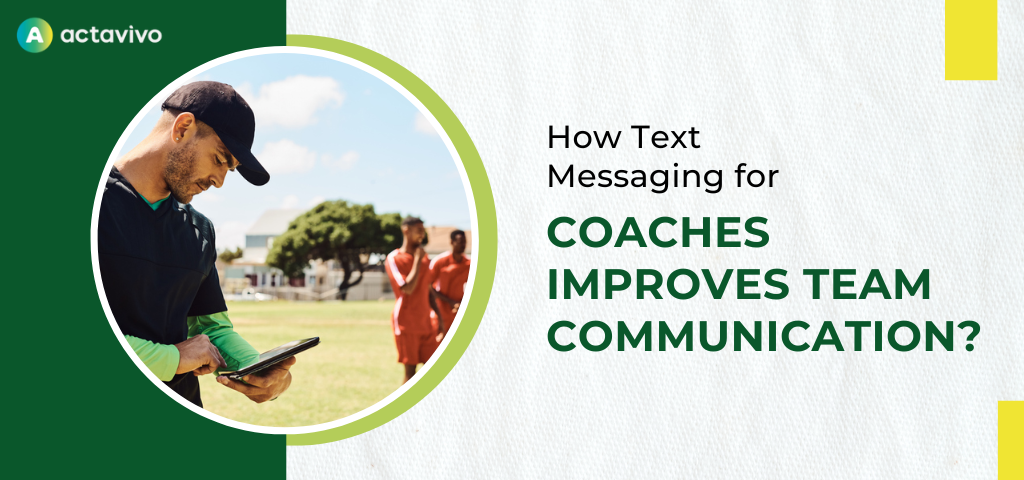How Text Messaging for Coaches Improves Team Communication?

We are aware that communication between sports team players and coaches is significant. How about text messaging for coaches as a communication channel? It might feel unimportant at first, but the moment coaches leverage the power of text messaging as a primary channel for communication, they can reap numerous benefits. Some of the notable benefits include, but are not limited to, improved team coordination, enhanced performance, a stronger coach-athlete relationship, and efficient and prompt communication.
In this blog, let’s understand how text messaging helps improve team performance in a specific and detailed way.
Benefits of text messaging for coaches and sports teams
- Improved real-time communication
When compared to other communication channels like calling or emailing, text messaging allows for real-time and quick updates about the event dates, times, strategies, reminders, and instant feedback.
Apart from this, the coach can also coordinate the administrative and operational tasks on time with team volunteers, players, and parents. This makes the overall team coordination effective and seamless without any delay or lack of communication, particularly when paired with a sports team scheduling app that keeps everyone aligned on events and updates.
- Increased engagement
In general, text messages exhibit higher open rates compared to other alternative communication channels. So, when a sports team uses specialized sports team messaging app, the messaging becomes simple and real-time. As a result, the relationship between the coach and the players becomes stronger, and the engagement is higher.
- Personalized motivation
Every sports team is unique and demonstrates unique characteristics and behaviors. In the case the coach manages one or more teams, one motivation is not sufficient. Each team needs personalized motivational messages. Thus, text messaging can be the right tool for coaches to personalize motivational messages to different teams.
- Privacy and security
In today’s world, data breaches have become a serious threat. And this can be one of the many reasons why coaches may not choose text messaging for team communications. However, lately, we can see that almost every free team communication app ensures data security and prioritizes privacy features over others. Thus, have no fear and simply start your team communications with text messaging.
Now that you know the importance and benefits of text messaging, as coaches, you can start scouting for the best application for communication with team players. A free app suffices the basic needs, so download a free communication application on your mobile now!
Frequently asked questions
- How to implement text messaging for coaches?
Instead of conventional text messaging, coaches can prefer text messaging in sports team communication app as they offer added features like creating and scheduling events, RSVPs, and multimedia messaging. This can drastically increase the team’s performance and coordination.
- Which is the best text messaging app in the market?
Actavivo is the most sought-after, leading, and free team app that most sports teams and their coaches use for text messaging. This application is user-friendly, free to download and use, and possesses several features useful for team management.
- How to begin a coaching conversation?
A coaching conversation between the coach and the athlete can begin with a positive note or motivation. Later, once the rapport is developed, the coach can get into the nuances of coaching, events, teams, etc.
- How can coaches make the best use of text messaging?
Consistency is key. As coaches regularly use text messaging and keep in touch with the team, the players will feel motivated, aligned, and engaged. This helps in building rapport, and over time, the team’s performance increases.
- What are the three C’s in coaching?
While some claim that curiosity, compassion, and courage are the three C’s of coaching, others claim challenge, confidence, and communication. So, as a coach, you can customize your three C’s according to your sports teams and the players you handle.
